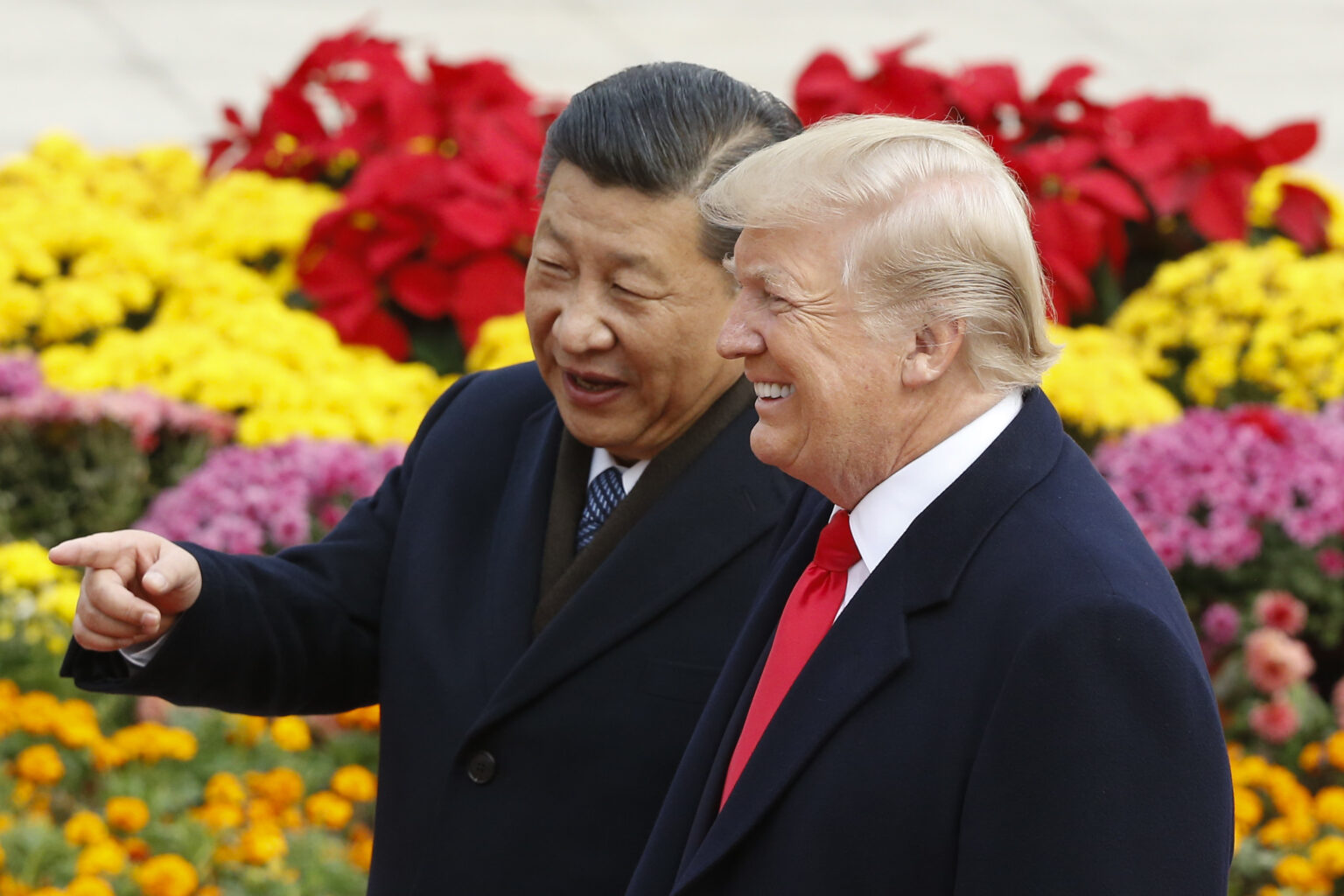Key U.S. partners in East Asia may be bracing for the return of Donald Trump, who is poised to win a second term as president.
As of time of writing, GOP candidate Trump had secured 267 of the 270 electoral votes needed to win, compared to vice president and Democratic nominee Kamala Harris’s 224.
When Trump takes office in January, it could herald the return of the “America first”-centered foreign policy that characterized his first term, which pressed U.S. allies to contribute more to their own defense and took a tougher stance on trade imbalances.
It could also mark a shift away from President Joe Biden’s “latticework” policy of increasing multilateral engagement in the region to counter an increasingly assertive China and respond to security threats from North Korea.
South Korea
In an interview with Bloomberg in October, Trump said South Korea should foot more of the bill to keep 28,000 U.S. troops stationed on its soil. He claimed that if he were president, Seoul would be shouldering $10 billion of the total cost.
A 2021 Government Accountability Office report showed the U.S. spent $13.4 billion to maintain its forces in South Korea from 2016 to 2019, while South Korea contributed $5.8 billion and waived rent on land used by U.S. troops.
U.S. analysts have argued the current arrangement is a net win, as it enables Washington to forward-deploy troops on China’s doorstep.
“Trump’s apparent landslide win puts U.S.-South Korea ties in flux just as (President) Yoon Suk Yeol, unpopular at home, is all in on the alliance,” Sean King, Asia scholar and senior vice president at consultancy Park Strategies, told Newsweek.
Park added that Trump would also have little interest in the growing trilateral cooperation between the U.S., Japan, and South Korea and “may again engage North Korea’s Kim Jong Un directly.”
Trump met with Kim in two ultimately failed rounds of talks aimed at getting the North Korean leader to walk back his United Nations-sanctioned nuclear weapons program. Pyongyang has said the outcome of Tuesday’s electoral contest will have no impact on U.S. ties regardless of the winner.
South Korea’s Deputy National Security Advisor Kim Tae-hyo has expressed concern that Trump’s transactional style could weaken Washington’s commitment to the “nuclear umbrella” protecting South Korea. “It is not unlikely that he would suggest negotiating defense cost-sharing or even the deployment of U.S. strategic assets from a cost perspective,” Kim told local media.
The Biden administration has repeatedly confirmed its commitment to the policy of extended deterrence to the country, keeping it under the protection of both the U.S.’s conventional forces and its “nuclear umbrella.”
Japan
Under the ruling Liberal Democratic Party (LDP), Japan has taken an increasingly proactive stance on security, largely in response to China’s assertiveness, ongoing disputes over the Senkaku Islands, and Beijing’s continuous threats to Taiwan.
Japan has revised its pacifist constitution to allow “collective self-defense,” expanded security cooperation with U.S. allies like South Korea and the Philippines, and set a defense spending target of 2 percent of GDP by 2027.
Prime Minister Shigeru Ishiba’s snap election gamble last month, however, resulted in a major setback for the LDP, leaving him scrambling to form a ruling coalition.
Whatever form this coalition eventually takes, with or without Ishiba at its head, defense is expected to take a backseat to bread and butter issues.
“Japan appears to be returning to a period of political uncertainty, which will complicate its defense ambitions,” Patrick Cronin, an Asia-Pacific security expert at the Hudson Institute, told the Japan Times. He added that Trump “will not hesitate to make cost-sharing an issue if Tokyo’s promised defense increases fail to materialize.”
Japanese Chief Cabinet Secretary Yoshimasa Hayashi told the press the alliance with the U.S. is “the linchpin of Japan’s foreign and security policies” and pledged to communicate closely with the incoming administration.
Taiwan
Trump has on a number of occasions made comments that cast doubt on whether he’d commit U.S. forces to the defense of Taiwan, the self-governed island which China claims as its territory.
In a recent interview on The Joe Rogan Experience, Trump falsely accused Taiwan of “stealing” U.S. chip manufacturing and suggested that Taipei should pay for American protection. “They want us to protect them…They don’t pay us money for the protection,” he said, pointing out that “the mob” expects protection money.
While the U.S. doesn’t officially recognize Taiwan, it maintains robust economic and unofficial diplomatic ties and sells Taiwan defense weaponry under the 1979 Taiwan Relations Act.
For decades, U.S. presidents have maintained a stance of “strategic ambiguity,” leaving open the question of whether Washington would intervene militarily should China attempt to forcefully reunite Taiwan.
Beijing has warned Taiwan against depending too heavily on U.S. support. “The U.S. will always pursue America First; Taiwan could go from pawn to outcast at any time,” a Chinese official stated last week.
Lev Nachman, political scientist and assistant professor at National Chengchi University in Taipei, said Trump’s historical penchant for unilateralism could further strengthen China’s hand in the region at the expense of the U.S.’s framework of alliances—complicate Taiwan’s standing.
“Japan and South Korea are in the middle of political uncertainty, which means China will have an easier time establishing dominance as the U.S.-Japan-South Korea alliance faces challenges,” Nachman wrote on X (formerly Twitter).
Nachman also pointed to Trump’s frequent praise of Chinese President Xi Jinping. “There is concern that Xi’s closeness to Trump could allow China to extract concessions on Taiwan, especially if Trump is unhappy with Taiwan at the moment,” he said.
Newsweek reached out to the Taiwanese and Japanese foreign ministries, and the South Korean embassy in the U.S. with written requests for response.
Read the full article here

